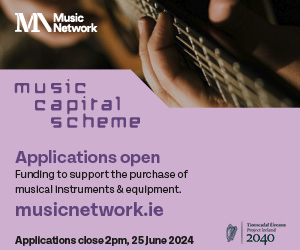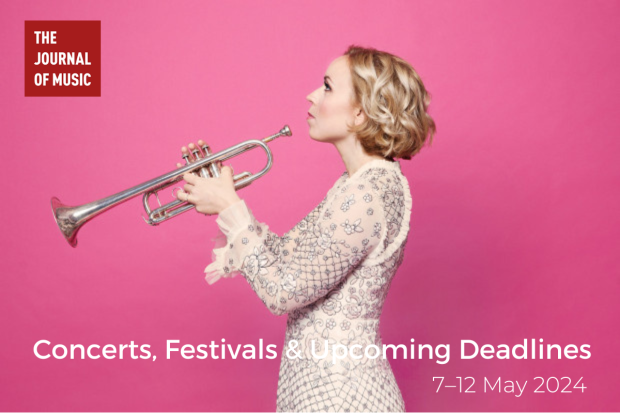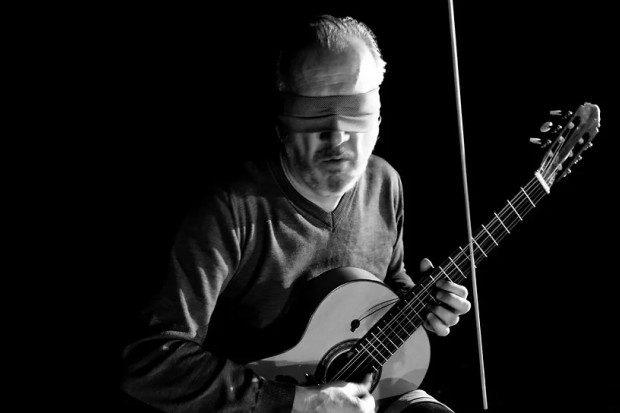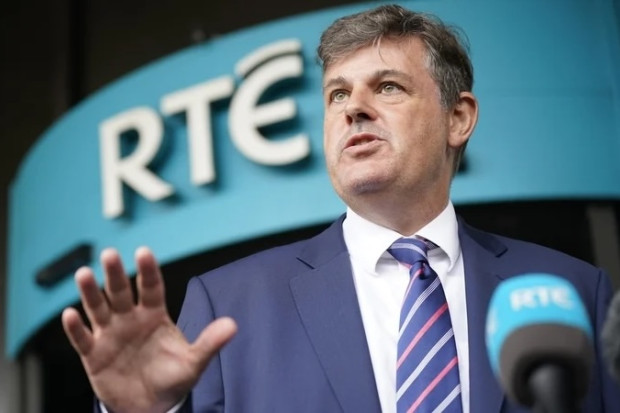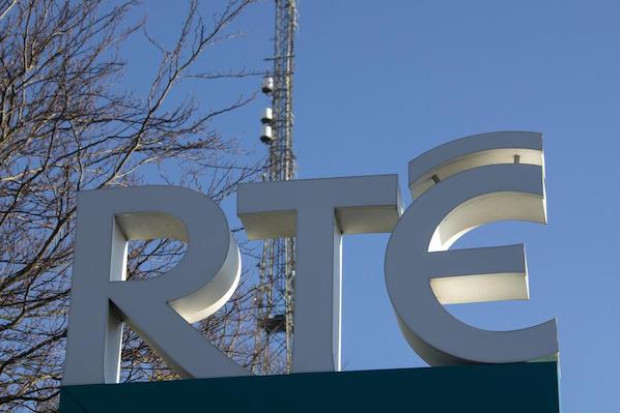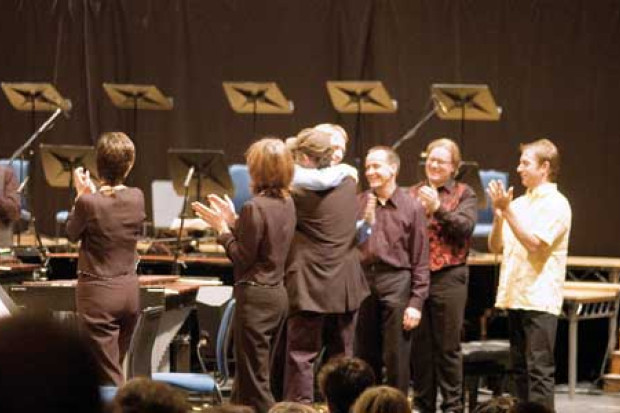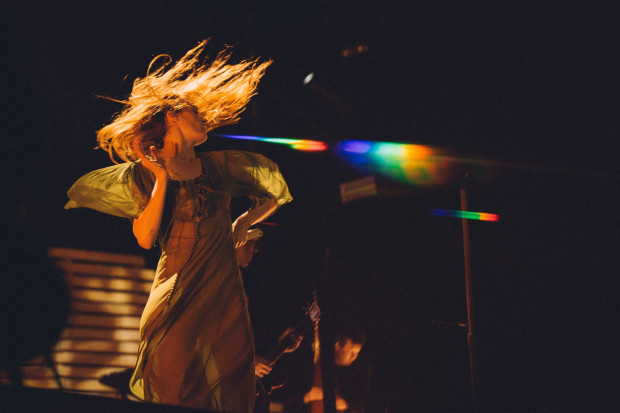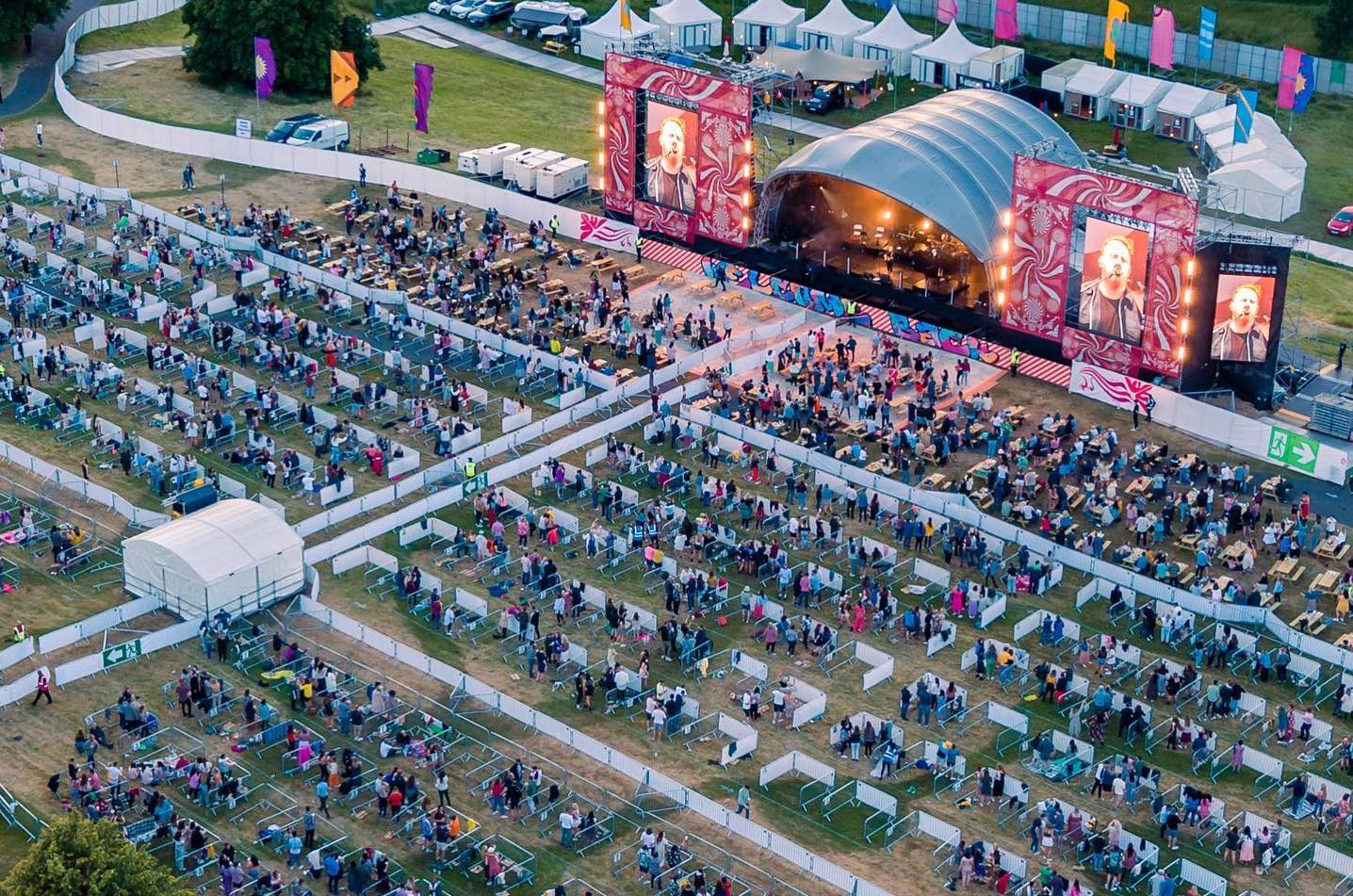
Socially distanced audiences at an event at the Royal Hospital Kilmainham in Dublin in July. (Photo: Department of Tourism, Culture, Arts, Gaeltacht, Sport and Media)
Music in Ireland has a Glass Ceiling and it’s Called Nationalism
It was when I heard the interview with Justin Green of the Events Industry Association of Ireland on RTÉ’s Drivetime on Tuesday (23 August) that I realised things had become desperate. Referring to the 18 months the industry has been closed, he said: ‘We were asked to do everything [i.e. cease holding events] … for the country.’ ‘We all understand that we have to do our part… for the country,’ he reiterated. Green understood that the only way left to make his argument for the return of live music was to coat it in the language of nationalist, patriotic rhetoric.
The next day, the Irish Times reported singer Christy Moore urging the Minister for the Arts to ‘“risk the [party] whip” in standing up for the rights of live performers.’ Live music had now become an issue of national pride and required a classic Irish revolt. The newspaper mentioned how Moore contextualised the crisis: ‘the pandemic is not the Great Famine nor the Civil War and previous generations had been through worse.’ Musicians have tried the scientific argument, they have tried the economic argument, and they have even tried the mental health argument. But still, the restrictions on live music persist. The language of national pride and historic hurt is the only one left to them, and that is what Irish political power understands. That is why the GAA All-Ireland match with 40,000 spectators went ahead; a hurling match speaks the language of national sentiment. Politicians attend the game, such as the Taoiseach did, and they see their own stoic personal struggle on the playing field. Unless music is expressing something similar, it falls flat. As Drivetime presenter Cormac Ó hEaghra explained to the music promoter Green, ‘Yesterday was the All-Ireland hurling final. It only comes around once a year. It’s something extra-ordinary.’ How could it be refused?
The cause of music, on the other hand, unless it is presented in nationalistic terms, will struggle. This is a serious problem for music in Ireland and the pandemic has exposed it again. In his 2014 book Different Voices, the composer Benjamin Dwyer referred to the ‘persistent notion that anything [musical] that is Irish must look or sound Irish…’. Music cannot exist for music’s sake. It must have meaning in the nation-building project that Ireland is forever on because of its historic psychological wounds. That is why the response to the live music sector was so empty. As a call to action, ‘reopening the live music entertainment sector’ carries no spiritual weight.
On Today with Claire Byrne (25 August), Dermot Desmond of MCD, one of the promoters behind the Electric Picnic festival, tried to understand why the pleas from the live music sector had no effect on politicians: ‘I think they have no understanding of our industry [and] the contribution our industry makes, which is disappointing.’ But music is ubiquitous in Ireland, and politicians are there on every opening night. How could there be such a lack of knowledge of the sector? It only makes sense if it is seen as symbolic.
Music in Ireland, in order to progress, is forced to work within a nation-building framework, and this creates paralysis and perplexes us because it is so limiting. It means that support for music and the arts reaches a certain level and then stops – unless it can turn green. It was not long before the discussion over the return of live music descended into an item on the news about rural Stradbally, where Electric Picnic was meant to take place. A man in favour of the festival refused to give his name because the town was ‘split right down the middle’. Discussing the issue like it is Civil War politics is the only way the country can make sense of it. Why can we not have a public discussion about music without tying it to matters of identity, pride and place? The result is a superficial connection to the actual music itself.
Our relationship with music has become so tangled up with national pride and nation-building that we may not be able to think of music independently of the nation anymore. It’s perplexing for musicians: ‘It’s what we’re known for, telling stories and singing songs, and it’s been totally forgotten,’ Conor O’Donoghue of the band Wild Youth told the Irish Times. ‘We’ve no answers. We can’t do anything. There’s nobody to talk to. It’s heartbreaking. I don’t know what to do about it,’ said the Dublin rapper Mango. When our language about music is wrapped up in our identity, a crisis leaves us lost for words.
We have to think hard about our public discussions around music, and how we are going to develop a better balance and a clearer view of music for music’s sake, and music as national vehicle. The challenge is huge. Sadly, if the Irish music scene had brazenly presented the reopening of the live music sector as an issue of national integrity, which is what the British theatre and musical sector did, it would have made more progress.
But to play that game means we are further trapped in a world of jingoism, our horizons limited. Music in Ireland has a glass ceiling and it’s called nationalism, and until we build a deeper, broader understanding of music in our society, we are all beholden to it.
Published on 26 August 2021
Toner Quinn is Editor of the Journal of Music. His new book, What Ireland Can Teach the World About Music, is available here. Toner will be giving a lecture exploring some of the ideas in the book on Saturday 11 May 2024 at 3pm at Farmleigh House in Dublin. For booking, visit https://bit.ly/3x2yCL8.







